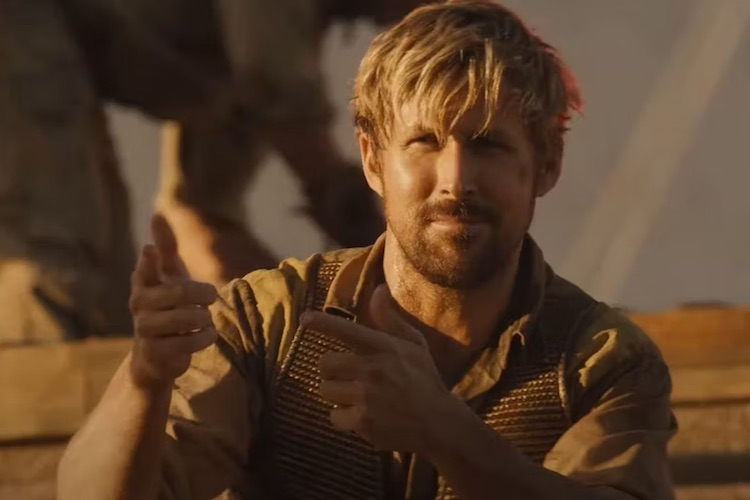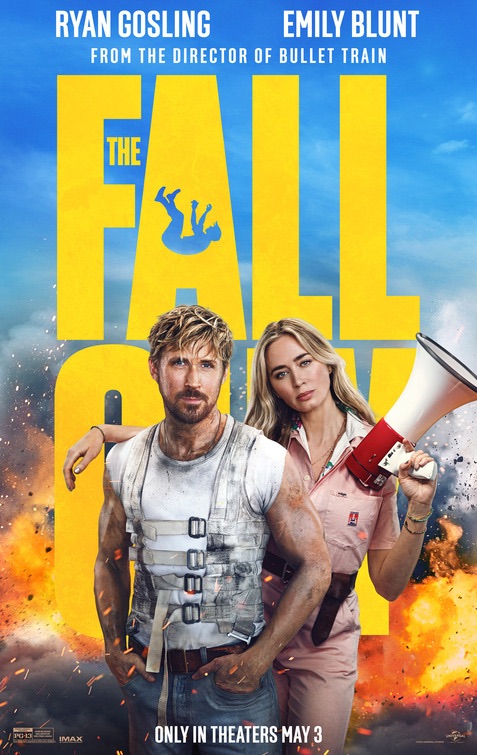Movie Reviews
‘Only the River Flows’ Review: An Elusive Chinese Serial Killer Procedural Pays Homage to Film Noir

A film noir that’s so vintage it comes wrapped in crackling celluloid and old cassette tapes, Only the River Flows (He Biande Cuo Wu) follows one obsessive detective’s long and elusive hunt for a serial killer in 1990s provincial China, and the effect it has on a small town with plenty of secrets lurking beneath the surface.
Written and directed by Shujun Wei (Striding into the Wind), the movie is less a nail-biting thriller than a puzzle-like homage to the noir genre itself, with echoes of Jean-Pierre Melville, Chinatown and Memories of Murder. But even more so, it’s a portrait of Chinese society before the recent economic boom and in the wake of the Tiananmen Square protests, at a time when citizens lead repressed lives of quiet desperation.
Only the River Flows
The Bottom Line A retro mystery that turns in on itself.
A few of those lives unravel at the hands of Ma Zhe (Yilong Zhu), the chief detective in his town’s criminal investigation unit, which, in true film buff fashion, has been relocated to an abandoned movie theatre, with Ma Zhe’s office up in the projection booth. (The setup resembles that of 21 Jump Street, with a cinema replacing a church.)
It’s a fitting headquarters for a story set in the pre-digital era, when technology was still mostly analog, and photographs or audio recordings were things you could manipulate with your hands. Both of those media will provide key evidence during Ma Zhe’s search for a killer who’s been stalking the local riverbanks, leaving several victims in his path, including an old woman, a forlorn poet and an innocent little boy.
Wei and co-writer Chunlei Kang adapted their script from a novel by Hua Yu, and the tone they initially take with their material, despite the grisly murders, is rather light. Ma Zhe’s crew of Keystone Kops prefer flirting or playing ping-pong to doing any real policework, and the film’s early scenes are filled with bits of observant social dramedy.
But as the investigation progresses, Ma Zhe’s obsession intensifies. He trails a key suspect, known only as the “madman,” who’s linked to the first victim and keeps escaping him. And he follows other clues that lead him to inadvertently expose the hidden lives of his community — whether it’s an illicit affair between two lovers of poetry, or a crossdressing hair stylist trying to conceal his identity from the public.
If the multiple killings in Only the River Flows are what keep the story going, they ultimately function as MacGuffins revealing something deeper and darker about mid-1990s China. The darkness is amplified when Ma Zhe’s private turmoil, involving the upcoming birth of a child who may be mentally disabled, creeps into the plot, causing much friction between the detective and his pregnant wife, Bai Jie (Chloe Maayan).
Increasingly thrown off course, Ma Zhe grows terrified and ashamed about what’s to come: Is the “madman” he’s hunting not unlike his future son? Shame and secrecy seem to be the guiding principles at a time, and in a place, where obedience counted most, and Wei keenly observes how adhering to social norms could drive some people over the edge. Even if Ma Zhe winds up catching the killer, or at least the guy he believes the killer to be, it’s a bitter victory, a source of private anguish despite his public triumph.
Shot by the talented Chengma Zhiyuan (Fires on the Plain) in a vintage style that’s purposely murky and tinged with various shades of mud, the film’s aesthetic echoes its somewhat opaque plotting, which doesn’t exactly make it an edge-of-your-seat affair. But like the investigation itself, the meaning of Only the River Flows gradually finds its focus as the story progresses, leaving the viewer staring into the same abyss the detective does — an abyss that, as in any respectable film noir, stares back at him.

Movie Reviews
Movie Review: The Fall Guy – CinemaNerdz

Based on the television show of the same name that ran for five seasons from 1981-86 and starred Lee Majors and Heather Thomas, director David Leitch’s new film, The Fall Guy, employs the same combination of action and sexual tension that fueled the show (albeit not necessarily between the two main characters). This approach makes for an entertaining and somewhat nostalgic aura around a film that, if approached a different way, could have resulted in another disappointing cinematic adaptation of a popular television property.
Colt Seavers (Ryan Gosling) is a stuntman at the top of his game. He is performing death-defying stunts alongside his wannabe director girlfriend Jody (Emily Blunt) until one stunt goes awry and a severely injured Colt all but retires from the profession. That is, until his services are requested on the film that his now ex-girlfriend Jody is making her directorial debut with. The prospect of making peace with her entices him to take up the mantle of stuntman again. When he gets on set however, he quickly learns that there is more to his emerging from retirement than simply performing a few stunts as the star of Jody’s film (played by Aaron Taylor-Johnson) has disappeared and the film’s producer Gail Meyer (Hannah Waddingham) enlists Colt to track him down and bring him back to set. Of course, this is easier said than done and Colt soon finds himself embroiled in a conspiracy that could derail not only his reconciliation with Jody, but her career as well.

Like he has done with films like Bullet Train (2022) and Deadpool 2 (2018), director David Leitch shows off his ability to deliver action sequences that invigorate a rather tepid plot (as in the case of Bullet Train), but also showcase a well-written story centered around a likable character played by a charismatic actor (i.e. Deadpool 2). Working from a script by Drew Pearce (whom he collaborated last with making 2019’s Fast & Furious Presents: Hobbs & Shaw), Leitch embraces the entertainment value of the original property without resorting to a camp approach as have many other television adaptations. What emerges is an action/adventure piece with a legitimate mystery for the hero to solve while simultaneously trying to get his life back on track.
As Colt, Gosling does a fine job of blending the character’s natural suave demeanor with the uncertainty he is facing during this crossroads moment of his life path. Likewise, Blunt is equally capable as the talented filmmaker who is unsure exactly why her former flame has shown up on her set after so much time away. Taylor-Johnson embraces the bombastic nature of his character as a spoiled star too used to getting his way.


Ryan Gosling in “The Fall Guy.”
Nods to the original television show, courtesy of David Scheunemann’s production design, including Colt’s iconic truck, prove a welcome and non-distracting homage to the series. Along with Leitch’s use of movement to capture the action sequences, the editing provided by Elísabet Ronaldsdóttir allows the film’s action sequences to move along at a brisk and well-paced speed.
The nostalgic and non-ironic adaptation of the television series The Fall Guy allows the film to stand on its own apart from its namesake property (although there is a cameo at the end of the credits featuring original stars of the series) and exist as its own successful action/adventure film.
Movie Reviews
‘Tarot’ movie review: Thrills and chills aren’t in the cards for this routine horror film

NOW STREAMING ON:
A group of college students are violently killed one-by-one after a fateful tarot reading in the frightfully unimaginative Tarot, which opens in Prague and cinemas worldwide this weekend. Following in the well-worn footsteps of tepid horror films like Ouija, Truth or Dare, and Wish Upon, this one is painfully obvious from the word go, but never gets silly enough to provide any bad-movie fun.
Last year’s monkey paw chiller Talk to Me suggested brighter things on the horizon for this type of horror movie, but Tarot dials things back to the same narrative these things have been following for decades: group of college students plays around with supernatural object they don’t understand, and quickly comes to regret it. This very specific sub-genre’s roots lie in early 2000s successes like The Ring and Final Destination.
Tarot opens with a group of largely interchangeable Boston-area college students played by Harriet Slater, Humberly González, Larsen Thompson, Avantika, Wolfgang Novogratz, Adain Bradley, and Jacob Batalon (Spider-Man: No Way Home) during a weekend retreat at an isolated manor in the Catskills (played by locations in Belgrade, Serbia). Desperate and out of booze, they search the weekend rental for a hidden stash but only turn up a box of creepy hand-illustrated tarot cards.
No alcohol? Sure, some tarot readings from this musty old deck will liven up the party. But when those readings start coming true over the following days, things start to take a dark turn. Waitaminute… surely all of these characters didn’t get a reading implying imminent violent death? No, they did not. But they did draw a creepy central card that comes to life to murder them in ways hinted at by the literal language of their reading.
In past films of this type, the characters would have to visit a library and scan microfiche to uncover the true horror behind the curse that stalks them. But in Tarot, that kind of thing is just a Google search away. In fact, there have been multiple cases of young adults mysteriously dying after tarot readings, though our protagonists have to pay a midnight visit to a tarot expert with pinboard walls (Mandy‘s Olwen Fouéré) to get the full story. It involves a royal astrologer in old Hungary, an ancient curse, and an expedient five minutes of climactic exposition.
The saving grace keeping Tarot from the bottom of this horror barrel is the novelty of the tarot cards themselves, which are nicely illustrated and lead to some briefly appealing creatures. Despite working with a script that couldn’t have inspired much confidence, the effects team, at least, gives this movie more effort than it deserves.
There’s precisely one engaging death scene here, a magician-inspired sequence that features a character hiding in a box… no prizes for guessing what happens. While the setting is transposed from what should be 17th century Hungary to 1920s vaudeville, the vibrant makeup effects used to set the scene evoke some Insidious-like goofball hellscape vibes, and provide a taste of the kind of horror stylings the rest of the film could have desperately used.
Tarot is based on the 1992 YA novel Horrorscope, written by the pseudonymous Nicholas Adams, which focused on daily hororscopes rather than tarot cards. It was directed by Spenser Cohen (co-writer on The Expendables 4 and Moonfall) and Anna Halberg, who previously collaborated on the fictional horror podcast Classified. But the end result leaves you feeling as if an algorithm is the true brainchild behind the story; this PG-13 movie about a group of college students who play around with a cursed deck of tarot cards certainly won’t surprise anyone who has the poor fortune of stumbling upon it.
Movie Reviews
The Idea of You Movie Review: Anne Hathaway’s honest performance makes the film stand out in a not so formulaic rom-com
)
Anne Hathaway’s The Idea of You showing on Amazon Prime Video is pure fluff which will make you feel happy. And with so much happening around us, we really need movies like this.
read more
No it is not a regular fan fiction. In fact, it is not a fan fiction at all. For me, it is why sadistic people around us hate happy women. When you hit rock bottom emotionally, you will find people loving you and caring for you. But when you are happy and at the high in your life, then people start having problems.
Anne Hathaway’s
The Idea of You
teaches you when you hit rock bottom, you have nowhere to go, but up. That’s exactly what happened to Solène (Anne Hathaway), a recently divorced woman just about to hit 40. She unknowingly lands up in a relationship with a British boy band sensation Hayes Campbell (Nicholas Galitzine).
Solène is in a dilemma because Campbell is way younger to her and on top of that he is the heart throb of many young girls. And he is hugely rich and famous too. It is just that Solène (Anne Hathaway) didn’t know who he was. Solène is a stylish woman who was initially unimpressed by his celebrity status. The Idea of You is a fresh take on the popular rom-com-drama formula
The initial part of the film deals with how she has still not come to terms with her sudden divorce and how she was the last one to know that her husband was cheating with her. She got married young and had a baby was very early on life and while she was struggling with motherhood and setting up her art gallery, the husband was having an affair with a lawyer from his firm. The wound of her husband cheating on her is still raw and she is still dealing with it. Burdened with responsibilities of motherhood and loneliness, she really doesn’t know what she wants from life.
Even when Solène (Anne Hathaway) meets Hayes Campbell (Nicholas Galitzine) she is totally confused. Campbell is in his twenties and madly in love with her. She feels that the relationship with a young man just doesn’t fit in her life and on top of that she has got a young girl. But she can’t stop herself from meeting him and being loved by him. Yet at the back of her mind there is always that feeling of guilt and things get worse when the intimate images of her and Hayes Campbell (Nicholas Galitzine) got leaked on the internet. She gets slut-shamed by Campbell’s fans.
The Idea of You is a feel good film and most importantly it is always refreshing to see good looking actors on screen. And with Anne Hathaway flashing her million-dollar dolphin smile every now and then, you definitely can’t take your eyes off her. The place where both Solène (Anne Hathaway) and Hayes Campbell (Nicholas Galitzine) are in an intense kissing scene and she, a single mother of a teenage daughter, stops herself from getting more intimate by saying, “I could be your mother.” And to this Hayes quickly says, “But you are not.” So, that’s the whole dilemma of Solène.
There is something very pure and beautiful in the way the love between the two are shown. Never for once, will you feel the relationship to be dirty. The simple love and attraction between the two is shown in such a beautiful way makes it a great weekend watch. The music, the styling, and the outfits are great. The story is simple and pure fluff, so just enjoy it!
Rating: 3 out of 5
-

 News1 week ago
News1 week agoLarry Webb’s deathbed confession solves 2000 cold case murder of Susan and Natasha Carter, 10, whose remains were found hours after he died
-

 Education1 week ago
Education1 week agoVideo: Dozens of Yale Students Arrested as Campus Protests Spread
-

 World1 week ago
World1 week agoHaiti Prime Minister Ariel Henry resigns, transitional council takes power
-

 News1 week ago
News1 week agoFirst cargo ship passes through new channel since Baltimore bridge collapse
-

 World1 week ago
World1 week agoUS secretly sent long-range ATACMS weapons to Ukraine
-

 World1 week ago
World1 week agoSpanish PM Pedro Sanchez suspends public duties to 'reflect'
-

 News1 week ago
News1 week agoAmerican Airlines passenger alleges discrimination over use of first-class restroom
-

 World1 week ago
World1 week agoAsia bears biggest climate-change brunt amid extreme weather: WMO














